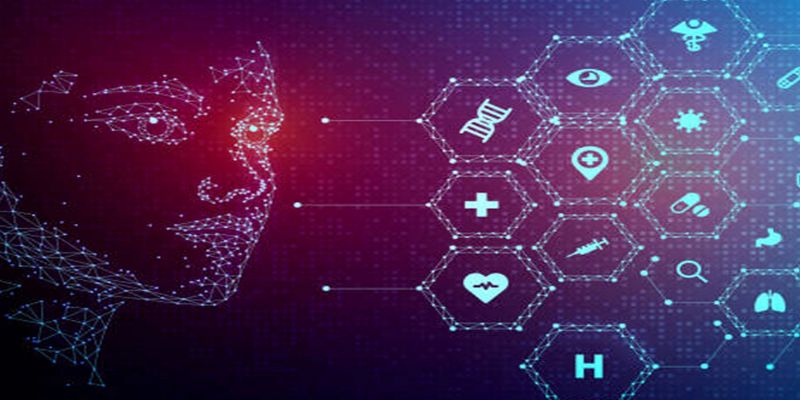
Generative AI has become one of the most discussed technologies due to its ability to create text, images, videos, music, and even code. While the technology offers groundbreaking opportunities, it also comes with serious risks and ethical concerns that cannot be overlooked. As organizations and individuals adopt generative AI tools, it becomes crucial to understand both the benefits and the potential dangers. Generative AI Course in Chennai stresses that recognizing and addressing bias is essential for developing fair and inclusive AI applications. This Blog is about the Risks and Ethical Concerns of Using Generative AI.
Understanding Generative AI
Generative AI refers to systems trained on large datasets to generate content that resembles human creation. Popular examples include chatbots, image generators, and music composition tools. These technologies can streamline creativity, improve productivity, and support innovation across industries. However, the very ability to replicate human-like outputs raises several ethical dilemmas.
Risk of Misinformation and Deepfakes
One of the most alarming risks of generative AI is the spread of misinformation. With the capability to generate realistic articles, images, and videos, AI can be used to create fake news and deepfakes that mislead people. For instance, fabricated political speeches or altered images can influence public opinion and destabilize trust in digital media. This challenge highlights the need for fact-checking mechanisms and responsible use of AI tools. Without proper monitoring, generative AI could become a weapon for misinformation campaigns.
Intellectual Property Concerns
Generative AI often trains on existing data, which may include copyrighted materials. When AI generates images, designs, or text, it sometimes reflects patterns from protected content. This raises questions about ownership. If an AI model creates artwork inspired by copyrighted paintings, does the credit go to the AI developer, the user, or the original creator? These gray areas in intellectual property law make it essential for regulators to create clear guidelines for AI-generated content.
Ethical Concerns in Bias and Fairness
AI models learn from data, and if the training data contains biases, the outputs will reflect them. Generative AI can unintentionally reinforce stereotypes or produce discriminatory content. For example, a resume-screening AI might prioritize certain demographic groups over others due to biased training data. This problem underscores the importance of ethical AI development, where inclusivity and fairness are central to model training and testing.
Privacy and Data Security Issues
Generative AI systems often rely on massive datasets, some of which may include personal information. When used carelessly, such systems may expose sensitive data, leading to privacy breaches. In some cases, AI-generated outputs have accidentally revealed personal details extracted from training data. To safeguard privacy, organizations need to implement strict data handling practices and ensure transparency about how data is collected and used in AI models.
Impact on Jobs and Creativity
Another ethical concern revolves around the impact of generative AI on human employment. As AI tools become capable of creating designs, articles, or even code, many fear job displacement in creative and technical fields. Graphic designers, content writers, and even programmers may face competition from AI systems that can produce results faster and at lower cost. While AI can assist in tasks, the overreliance on automation risks undervaluing human creativity. Balancing AI assistance with human originality is key to avoiding a complete replacement of creative professionals.
Security Risks in AI Misuse
Generative AI is not only used for creative purposes but also has potential misuse in cybercrime. Hackers may leverage AI to generate phishing emails, fake identities, or malicious code that appears genuine. This amplifies cybersecurity threats and makes it harder to detect fraudulent activities. The misuse of AI for cyber threats highlights the need for stricter security measures and responsible deployment of generative technologies. Artificial Intelligence Course in Chennai prepares learners to understand both the power and responsibility that come with generative AI.
Ethical Responsibility of Developers and Users
The responsibility of ethical AI use does not rest on developers alone. Users also play a critical role in ensuring AI is applied responsibly. Developers must focus on transparency, accountability, and fairness, while users must avoid exploiting AI for harmful purposes. Governments and organizations worldwide are working on ethical guidelines and regulations to ensure that generative AI remains beneficial rather than harmful.
Balancing Innovation with Responsibility
Generative AI has immense potential to transform industries such as healthcare, education, entertainment, and business. However, unchecked use can lead to risks that outweigh the benefits. Striking a balance between innovation and responsibility is essential. Clear rules, proper training, and ethical practices must accompany AI adoption.
Generative AI is undoubtedly a revolutionary advancement, but it is equally important to recognize its risks and ethical concerns. Issues like misinformation, copyright challenges, bias, and misuse for cybercrime emphasize the need for careful regulation. By approaching AI development and usage with responsibility, transparency, and fairness, society can harness the benefits of generative AI while minimizing its dangers. Ultimately, the future of AI depends not just on technological progress but also on the ethical choices made by its creators and users.
